Tube strike: Second day of London Underground action
- Published
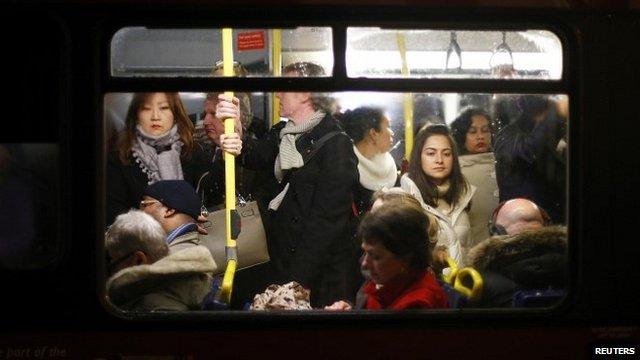
Passengers faced packed trains on their way home during the evening rush hour
Londoners endured a second day of Tube disruption during a 48-hour strike over ticket office closures and job cuts.
A limited service was in place for the second evening rush hour of the strike, which began on Tuesday at 21:00 GMT.
The RMT and TSSA unions said they would take part in talks with management on Friday aimed at resolving the dispute.
The first of two planned strikes has ended, but services will not be back to normal until Friday morning London Underground (LU) said.
LU said up to 190 of 270 stations were open, but a full service could not resume immediately because of shift patterns.
Further industrial action, external is planned for Friday between 09:30 and 11:30 and 18:30 to 20:30, when the unions are asking members to leave ticket barriers open.
Commuters tackle second day of Tube strike, as delays continue
They are also urging members not to issue penalty fares.
LU's chief operating officer Phil Hufton said the company was "not obliged to pay employees in full if they refuse to carry out their full range of contractual duties".
Earlier Transport for London (TfL) said nine of the 11 lines were running and nearly 75% of stations were open, more than on Wednesday.
For a second day millions of commuters were affected, many to relying on buses instead of the Underground.
It was every man for themselves for a while in Shepherd's Bush
'Wiggle room'
Ahead of Friday's planned talks, the Mayor of London Boris Johnson told BBC London 94.9, external, there was "wiggle room".
He apologised to people who had experienced disruption and repeated that he thought passengers would be safer and better protected with members of staff on concourses, instead of "behind plate glass".
The mayor said the unions had shown a "failure to engage" in talks, adding: "Rather than hurting hard-working Londoners and hard-pressed small businesses they should have been talking to TfL this week."
'Get serious'
RMT leader Bob Crow said, external it was the first he had heard of "wiggle room", adding: "My negotiators have been told for the last five weeks there is none."
TSSA leader Manuel Cortes said it was time for the mayor to "get serious", saying 70% of the network was at a standstill.
He said: "We want no more stunts or PR baloney from Boris. We want serious and detailed talks on our genuine fears for the safety and security of passengers and staff under these far-reaching plans."
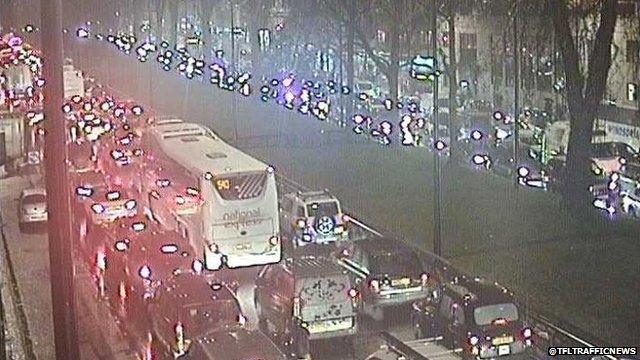
Extra traffic built up on Park Lane and was made worse by broken down vehicles and collisions
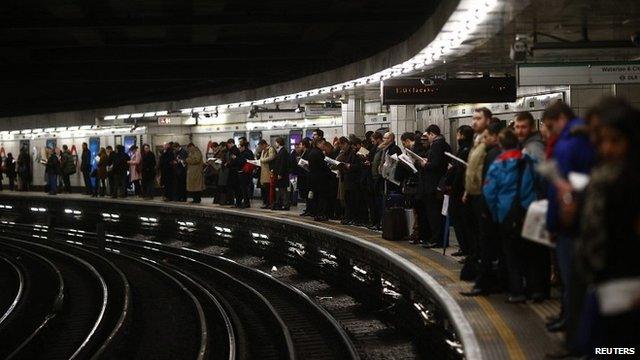
There were large queues for the trains that were running as commuters made their way home
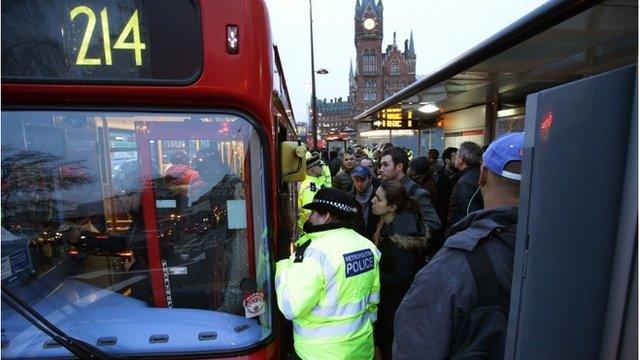
Once again passengers struggled to get on overcrowded buses
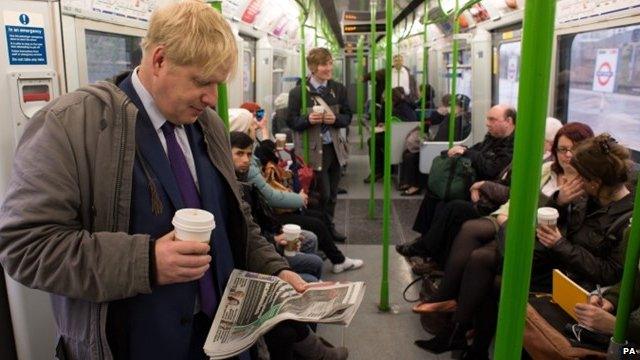
Some services were running and Boris Johnson took the District Line
James, from Harrow, who supervises a small station, told BBC London 94.9 he was worried about his job and the safety implications of the changes.
He said he was currently a supervisor at one station and had one other staff member with him. Under the changes, he would have to oversee five stations.
He said: "I don't want to strike. It's the first time I've ever been on strike.
"But there are incidents every day - someone who is blind, or someone who wants guidance. Very rarely do you have one person at a station."
Police staff
Philip, from Croydon, works in a ticket office and said workers still had to handle lots of Oyster-related problems, including visitors from overseas wanting refunds before they return home.
TfL has said its proposed changes, which will lead to 960 job losses - but none compulsory - will modernise systems and save £50m a year.
The industrial action came as the government said it was considering plans to declare London Underground an essential service, akin to the police, in order to curb the threat of future strikes.
Thousands of Metropolitan Police civilian staff are planning to strike for two days in a row over a 1% wage rise. The action will coincide with the next planned 48-hour Tube strike.
You can follow any disruption on the BBC London travel Twitter feed @BBC Travel Alert, external or on the BBC London Travel Page. You can also get regular travel updates from the BBC London 94.9 travel team.
- Published6 February 2014
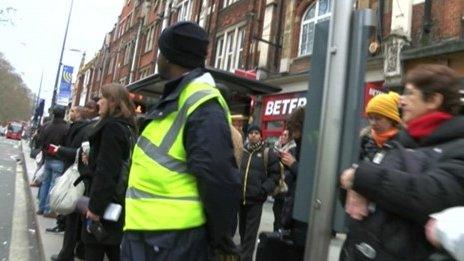
- Published6 February 2014
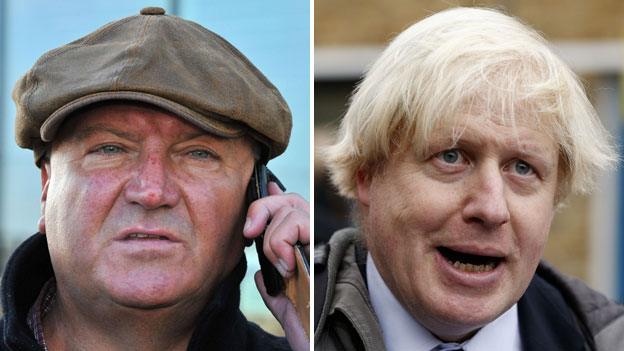
- Published5 February 2014
- Published5 February 2014
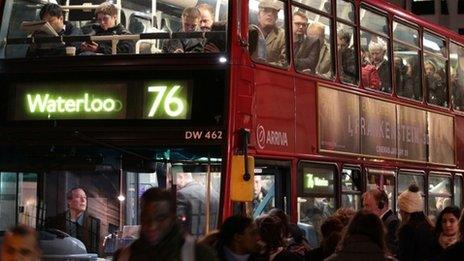
- Published5 February 2014
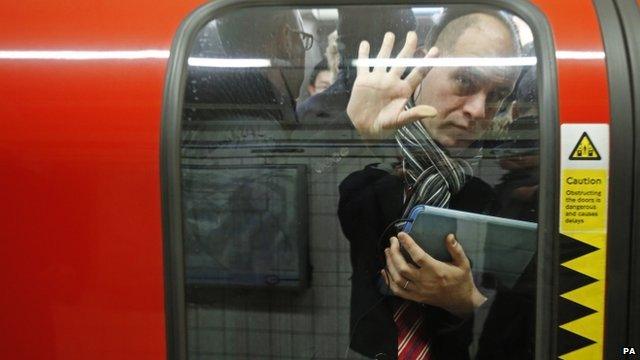
- Published6 February 2014
- Published28 April 2014
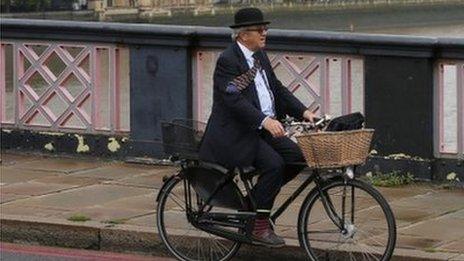
- Published4 February 2014
- Published5 February 2014
- Published5 February 2014